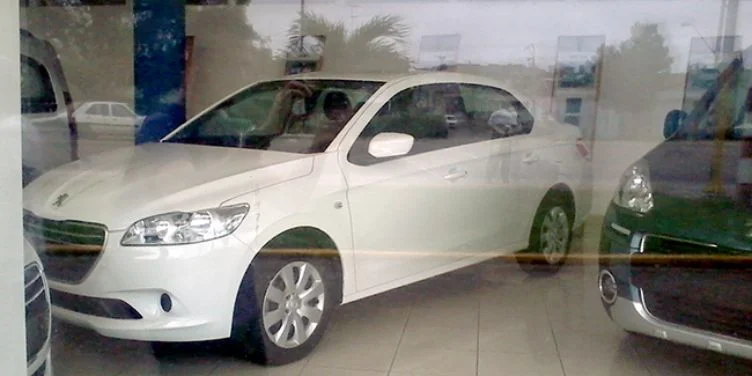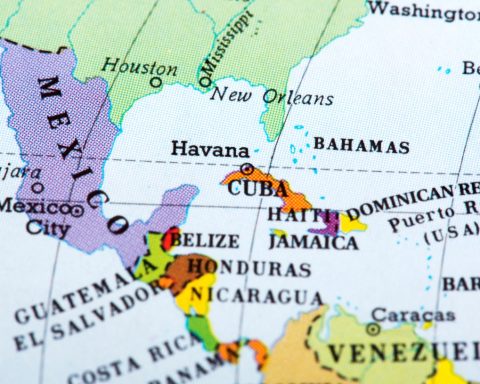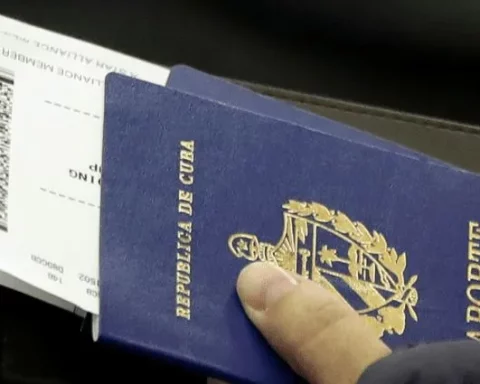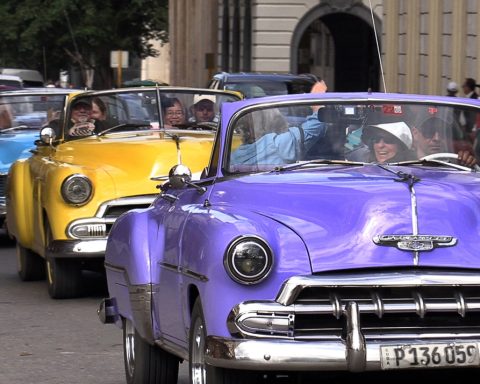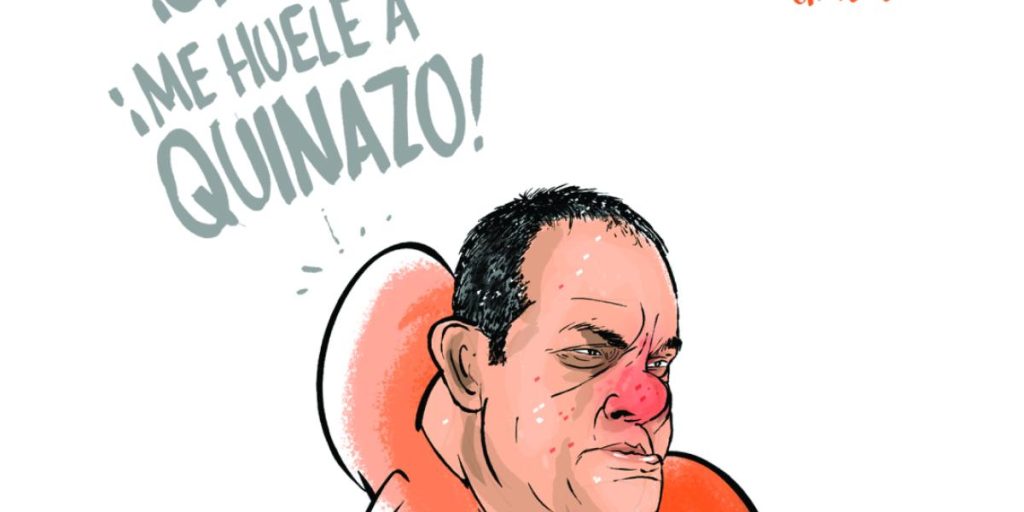HAVANA, Cuba. – That a man buys a Chinese car at the Mercedes Benz marketing company in Cuba becomes viral news, and that it is not exactly a car from the renowned German brand (one of those that does not go below $90,000, but rather a “little bit” of at most 20,000, which perhaps the manufacturer sells for 10,000 or less, taking into account the large profit margins that sellers charge on the Island) makes the headline much more ridiculous. Only in Cuba does the simple and common act of purchasing a car become an event, and even the dealership gets excited proclaiming that it is “making history” when such matters are already prehistory anywhere on the planet.
The same regime, publishing the new regulations on the sale and purchase of cars (which barely softens the accumulation of absurd prohibitions that turn car ownership into a privilege), intends to present itself to the world as a government that “updates” and “changes” when he is actually thirsty for dollars; and the same people who run to book an appointment to spend their savings on “updating” the image of the “nouveau riche” in the neighborhood, in reality, more than owning a new car, what they are looking for is to prove themselves (but above all to others). neighbors) who is immune to that harsh, sad and miserable reality that surrounds him, who lives a “normal” life in the midst of a context with more than 60 years of time lag with respect to the world.
We live in an anachronistic state, of social, political and economic obsolescence that leads us, among other oddities, to turn nonsense into news and to act accordingly, and this includes, for example, feeling that we are making history because we are allowed to buy the cash (or sell) a cheap car as if it were a luxury, and even feel privileged because we were able to do it thanks to the remittance sent by a family member; to inflation, chaos and corruption that make personal business prosperous, but not thanks to the salary, which, no matter how “good” it is, is not even enough to buy a bicycle, nor even enough for an entire year.
That’s how idiotic they have left us, and that’s how “enthusiastic” we are about the new experiment, as the new “socialist emulation” is not about filling the file with harvests, parades, union guards and militia mobilizations, but about emulating with Sandro Castro Let’s see who exhibits the best “good life”, in addition to blackouts, shortages, hospitals in ruins and garbage dumps burying the neighborhood (and at the same time feeding the crazy and homeless).
And yes, this “enthusiasm” for purchasing a new car—in the same country where gasoline, spare parts, roads in good condition, places to go for a ride, and dollars are scarce—has a certain explanation in stupidity. and in the trauma of absurd prohibitions, in the need that some have to feel or at least pretend to be “normal” in the midst of the most adverse scenarios, but also in the certainty that the communist regime is very unstable in its “states of mood”, inconsistent and manipulative in his “changes” and “updates”, so that tomorrow he could reverse the flexibilities with the sale of cars, just as happened with the MSMEsa setback that has all the marks of a setup, of a scam.
Because deep down it is what underlies in greater proportion: the fear that the beautiful “story” that those from Mercedes Benz talk about will advance towards terror and that, once the dollars they need have been collected (possibly to present them as collateral before the BRICS+ lenders, or to withstand the strong onslaughts that are approaching), they come down with the story of “correcting distortions” and even MCV Comercial SA ends up biting its tongue. At the end of the day, it is a mixed company, which in Cuba is like saying a “bipolar” company, as much as the sick minds that created it back in the mid-90s, in the midst of “Special Period”.
They are the same minds that until just yesterday, and in the same marketing companies, sold and even gave away cars (much more expensive and not Chinese) to this or that person authorized to become a customer or a winner, thanks to their ancestry. , the color of his uniform or the “loyalty” demonstrated, a practice so normal that it is perhaps what has helped transform into news the extraordinary fact that a man allegedly without surnames or friends known or certified by the Political Bureau of the PCC has been able to purchase a car with no other condition than money in his pocket.
So the “story” to which MCV Comercial SA refers is that of having been able to legally sell a car without waiting for the authorization letter from the Council of State, or for the approval of the Ministry of the Interior, ensuring that the client He is a “reliable” guy.
Because the story of having a new car in Cuba goes through the trauma of living immersed in a reality where earning the right to have one was for many years synonymous with reliability and even complicity with the regime. Even the car models said a lot about their owners: thus a Lada (especially the dark blue ones) identified in the 80s the military hierarchy between high and intermediate, after the Alfa-Romeos, introduced in Cuba during the years 60 by the Italian Leo Cittone, a great friend of Fidel Castro, served as distinctive cars for the leadership, and later for the heads of the political police—and even as patrol cars—when a fleet of Mercedes Benz was converted into the official “number one” means of transportation, while the Russian Chaika were reserved for the occasional protocol act and later for the limousine service in tourism.
The Polski (the Fiat made in Poland), the Moskvitch, and some types of Italian Fiats also introduced on the Island by Cittone (along with the famous Olivetti typewriters, the Piccolino tractors and the Guzzi motorcycles of the police) were identified in the meantime to that “intermediate” class made up of officials, managers, lower-ranking military personnel, athletes, doctors and scientists, some certainly outstanding in their profession or activity, although always backed by their proven loyalty to the regime.
In the first instance, it was proven and sworn fidelity, certified by power through all its control mechanisms, that decided. Having a car, when it was not a high boss or their relative, even went through a verification in the Committee for the Defense of the Revolution (CDR) and, of course, through a union assembly where “merits” were evaluated. ” and “demerits”, and where the workers fought each other tooth and nail to the point of blood, just as they fight these days seeking to be approved for a “mission”.
The same thing happened to win a refrigerator, a television, a radio, a mixer or a weekend in Varadero, even in Guanabo; But for a car or a house the battle was fiercer, since obtaining the first was not only about comfort, about being safe from that public transport that has never known good times, but about rising in social status in sight. from the neighbor for whom a “private” car was (and still is) indisputably a chimera.
Today, having a Lada, a Moskvitch, even a wine-colored Alfa-Romeo that the elite preferred to distinguish themselves, does not mean what it did yesterday, but even falling to pieces, its possession continues to make a difference with that majority that moves on foot or by car. mercy of the almendrón, the bus, the pedicab, the Yutong or the GAZelles. But a new, modern car, with zero kilometers is something else, and having enough dollars to go as a customer to that place where until yesterday only the bosses could enter who today no longer buy there – because they do it in Miami, in Madrid, in Panama or even in Moscow or Beijing—it cannot be said that it is a privilege, but in a country as miserable as ours that—as well as having a glass of milk for breakfast—makes a difference, it becomes news and, above all, it gives us makes live the fantasy of being “normal”.
